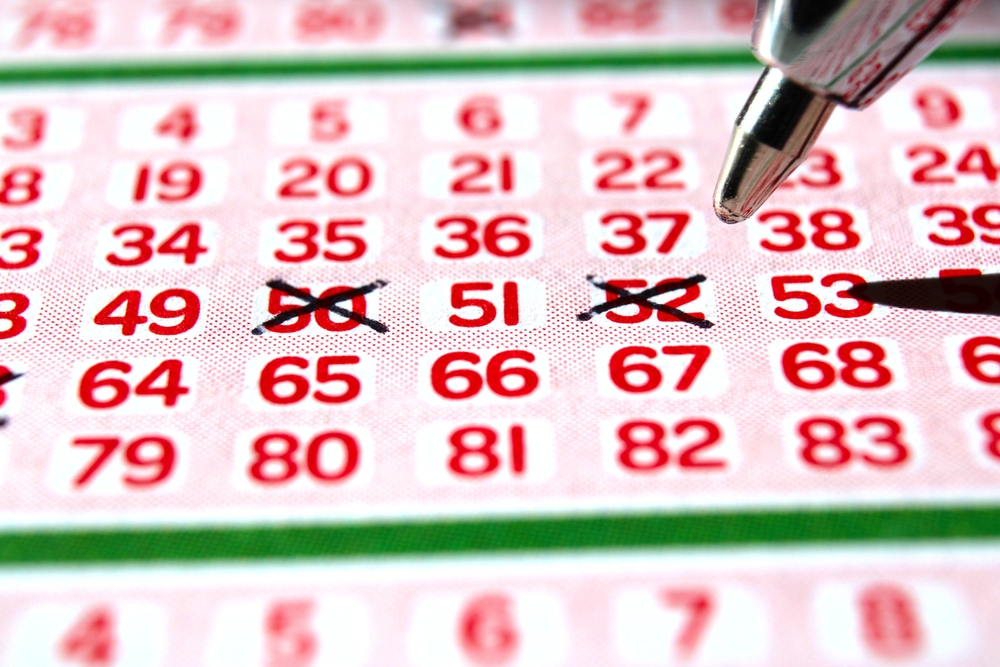Frugality is an art form for some and a necessity for others, but savvy financial management is always a good idea. It’s not just about clipping coupons or hunting for a bargain; it’s a lifestyle that prioritizes long-term benefits over short-term pleasures. Frugal people understand the power of choice and restraint, directing their resources toward what truly matters.
1. Cheap Fast Fashion

In a world where trends change faster than you can say “runway,” it’s tempting to fill your closet with the latest styles at budget prices. However, fast fashion often comes at the expense of quality and ethics. Frugal people know that investing in timeless, durable pieces not only saves money in the long run but also reduces environmental impact. They prioritize a capsule wardrobe of versatile items over fleeting fads.
A report from the Ellen MacArthur Foundation highlights how fast fashion contributes to a significant amount of global waste. By opting for sustainable brands or even second-hand shopping, you can make a statement against this wastefulness. This choice not only reflects your values but also ensures that your wardrobe is both stylish and conscientious. Plus, fewer but better items mean less clutter and more closet space.
2. Premium Cable Packages

With a plethora of streaming options available, paying for an expensive cable package seems redundant. Frugal people prefer to pay only for the content they actually watch, whether it’s through curated streaming services or even free digital libraries. This targeted spending allows them to cut down on unnecessary expenses while still enjoying quality entertainment. The freedom to watch on your schedule is an added bonus.
Moreover, many streaming services offer flexible plans or shared accounts that further reduce costs. By comparing different services, you can find a combination that suits your viewing habits without breaking the bank. Frugal people often take advantage of free trials or seasonal deals to test out different platforms. In the age of endless content, it’s all about being selective.
3. Brand-Name Groceries

Strolling through the grocery aisles, it’s easy to reach for familiar brand names, but doing so might mean paying a premium for packaging, not quality. Frugal people often choose generic or store brands, which frequently offer the same quality at a fraction of the cost. Blind taste tests, such as those conducted by Consumer Reports, show that many store brands match or exceed their brand-name counterparts in quality. This simple switch can lead to significant savings over time.
Moreover, buying in bulk or during sales can maximize these savings further. Frugal grocery shoppers are experts at meal planning and couponing, ensuring each purchase is intentional. They focus on fresh ingredients and whole foods, which are often less processed and healthier than pre-packaged brand-name options. It’s a win-win for both your wallet and your well-being.
4. Expensive Gym Memberships

While staying fit is invaluable, paying for a pricey gym membership isn’t the only route to wellness. Frugal people often find creative ways to stay active without the hefty fees. Outdoor activities, home workout programs, and community fitness classes offer diverse and cost-effective alternatives. They know that fitness doesn’t require a state-of-the-art treadmill, just commitment and consistency.
There are also numerous free resources available online, from workout videos to fitness apps, which can guide you through effective routines at no cost. Some people swap out gym memberships for investing in basic equipment like dumbbells or a yoga mat, which provide versatility for at-home workouts. Additionally, many cities offer free or low-cost access to community centers and public sports facilities. By being resourceful, you can stay fit and financially healthy.
5. Daily Takeout Coffee

The allure of a daily latte or cappuccino is hard to resist, but those small expenses quickly add up. Frugal people often brew their coffee at home, enjoying the ritual as much as the savings. A study by the National Coffee Association found that 79% of people prepare coffee at home, a habit that can save hundreds of dollars annually. The initial investment in a quality coffee maker pays off quickly, leaving room for experimenting with different beans and flavors.
Moreover, making coffee at home allows for customization without the extra cost. You can replicate that favorite café experience in your kitchen by experimenting with spices, syrups, and milk alternatives. Over time, you might even develop a keener appreciation for the art of coffee-making. Plus, there’s the added benefit of reducing disposable cup waste, aligning your habits with eco-friendly values.
6. Trendy ‘Useless’ Gadgets

The tech world is ever-evolving, making it tempting to chase after the latest gadgets. Frugal people, however, focus on functionality over novelty, investing in technology only when it enhances their lives in a meaningful way. They research extensively, reading reviews and comparing features before making any purchase. This ensures that their tech investments are both prudent and purposeful.
Often, they wait for sales or consider refurbished models, which offer the same quality at a reduced price. By choosing gadgets that serve multiple purposes, frugal people avoid clutter and unnecessary spending. They might also trade or sell older devices to offset the cost of new ones. In a landscape of constant updates, patience and discernment are crucial.
7. Unnecessary Insurance Policies

Insurance is vital, but over-insuring can be a costly mistake. Frugal people evaluate their needs carefully, ensuring they’re covered without paying for superfluous policies. The Insurance Information Institute advises periodically reviewing your insurance to avoid redundant coverage and to adjust limits according to life changes. This helps in striking the right balance between protection and overspending.
They often bundle policies, like auto and home insurance, for discounts. Additionally, they shop around for the best rates and are not afraid to switch providers if better options emerge. Frugal people understand that insurance is about risk management, not fear. By being informed and strategic, they protect both their assets and their finances.
8. Flashy New Cars

A brand-new car loses a significant portion of its value the moment it leaves the dealership. Frugal people typically opt for used or certified pre-owned vehicles, which offer better value for money. They look for reliable models with a good track record, prioritizing functionality over flash. This approach minimizes depreciation and maximizes their investment.
The frugal mindset also extends to vehicle maintenance. They adhere to regular service schedules to extend the lifespan of their cars, preventing costly repairs down the road. By keeping an eye on fuel efficiency and insurance rates, they further reduce the overall cost of ownership. When it comes time to sell, a well-maintained car retains more value.
9. Lottery Tickets

The dream of hitting it big with the lottery is tantalizing, but frugal people see it as a poor financial strategy. They understand that the odds are overwhelmingly against them and that money is better invested elsewhere. This perspective is supported by data from the North American Association of State and Provincial Lotteries, which shows how unlikely it is to win. Instead of gambling, they choose to grow their wealth through more reliable means.
By channeling that money into savings, investments, or even education, they focus on building a secure financial future. The thrill of the lottery is replaced by the satisfaction of watching their assets grow over time. They might indulge occasionally for fun, but it’s never a pillar of their financial plan. For them, financial security far outweighs the fleeting allure of a lucky win.
10. Expensive Bottled Water

With clean tap water available in many places, buying bottled water is often an avoidable expense. Frugal people see the value in investing in a good reusable water bottle, which is both eco-friendly and economical. Over time, this small change makes a significant impact on both the environment and your wallet. Beyond cost, it’s about making a conscious choice for sustainability.
Many frugal people also invest in water filtration systems if they have concerns about water quality. This upfront cost quickly pays for itself compared to the cumulative expense of bottled water. Plus, it provides peace of mind knowing the source and purity of what they drink. By avoiding bottled water, they contribute to reducing plastic waste, aligning their actions with broader environmental goals.
11. High-Interest Debt

Frugal people are wary of high-interest debt, understanding it as a financial sinkhole that’s tough to escape. They prioritize paying off debt quickly, particularly credit cards, to avoid accruing excessive interest. Tools like the snowball or avalanche methods of debt repayment are often employed to strategically reduce what they owe. This disciplined approach keeps their finances healthy and stress levels low.
They also avoid accumulating new high-interest debt by living within their means. Instead of borrowing, they build an emergency fund to handle unexpected expenses. Frugal people might use credit cards for convenience or rewards, but they pay off balances in full each month. This vigilance ensures they retain control over their financial future.
12. Overpriced Beauty Products

The beauty industry is filled with high-priced products that promise miraculous results. However, frugal people know that a high price tag doesn’t always equate to effectiveness. They often seek out well-reviewed, affordable brands, focusing on quality ingredients rather than marketing hype. This discerning approach ensures they get the most bang for their buck.
Additionally, they understand the value of a simple skincare routine, investing in a few key products rather than a multitude of unnecessary ones. DIY beauty treatments using natural ingredients are also popular among the frugal-minded. They pay attention to their skin’s specific needs rather than following every trend. By prioritizing value and efficacy, they maintain their beauty regimen without compromising their budget.
13. Expensive Restaurant Dining

Dining out can be a delightful experience, but frequent outings quickly drain your finances. Frugal people reserve eating out for special occasions, choosing to cook at home as a default. This not only saves money but also allows for healthier, more personalized meals. Cooking at home becomes an enjoyable, creative activity rather than a chore.
They plan meals ahead, often preparing in bulk to save time during the week. By shopping smartly, they ensure that pantries are stocked with versatile ingredients, minimizing food waste. When they do dine out, they seek value for money, opting for quality over convenience. This balance allows them to enjoy the occasional culinary indulgence without sacrificing financial goals.
14. Regrettable Impulse Buys

Impulse buys are the bane of the frugal lifestyle, often leading to regret and clutter. Frugal people practice mindfulness, pausing to consider whether a purchase aligns with their needs and values. They employ strategies such as the 30-day rule, where they wait before buying to ensure it’s a thoughtful decision. This time-tested approach fosters intentionality.
By creating and sticking to a budget, they allocate funds for specific goals, reducing the temptation to veer off course. Frugal people often maintain wish lists, revisiting them to assess if desires persist over time. This disciplined mindset not only curtails unnecessary spending but also cultivates a deeper appreciation for what they already own. Ultimately, it’s about embracing a lifestyle that prioritizes contentment over consumption.
This article is for informational purposes only and should not be construed as financial advice. Consult a financial professional before making investment or other financial decisions. The author and publisher make no warranties of any kind.








